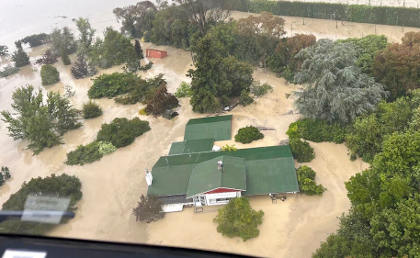The Disaster Response Emergency Fund (DREF) Insurance mechanism, pioneered by International Federation of Red Cross and Red Crescent Societies (IFRC) in partnership with Aon, is a vital new approach for enhancing preparedness and risk transfer, IFRC Under Secretary General, Nena Stoiljkovic, highlighted.
 A recent London Summit brought together leaders and decision-makers from across governments, multilaterals, civil society, and the private sector, to collaboratively explore the critical role of insurance markets to help address climate and humanitarian crises.
A recent London Summit brought together leaders and decision-makers from across governments, multilaterals, civil society, and the private sector, to collaboratively explore the critical role of insurance markets to help address climate and humanitarian crises.
The event was co-convened by the Humanitarian Finance Forum with the British Red Cross, the IFRC and Aon.
Stoiljkovic said: “We can’t continue with the status quo. Collectively, we must invest in and develop new tools to enable better humanitarian response. The IFRC is incredibly proud to deliver a tangible product that paves the way for sustainable funding and simultaneously creates a humanitarian market for insurance companies.
“We believe DREF Insurance could be a replicable model for others in the development sector. This new insurance product could not have been achieved without strategic collaboration with the private sector, so we urge greater cross-sector collaboration to bolster humanitarian efforts.”
Since its launch in 1979, DREF has been a vital lifeline for over 200 million people, providing rapid response during crises. To keep pace with increasing disasters, it needed to look beyond traditional donors and funding mechanisms, which led it to work with the private sector.
Back in September, DREF Insurance was launched as a tool to provide a backstop to DREF, enhancing its capacity to respond to natural hazards quickly. By transferring risk from public balance sheets to the private sector, the Fund is able to respond more flexibly and effectively.
The new insurance tool will provide DREF with contingency funding of up to 20 million Swiss Francs ($23 million). This means that once DREF’s allocated funding for natural hazards hits 33 million Swiss Francs ($38 million), the reinsurance is triggered to replenish DREF’s reserves.
DREF Insurance is described as a ground-breaking innovation that shows the power of cross-sector collaboration in delivering innovative financial mechanisms that protect the most vulnerable.
Speakers discussed the opportunities for scaling global risk transfer mechanisms to ease funding pressures and reinforce capacity to respond quickly, and effectively, to disasters.
They also spoke about the benefits for the public sector, which include: the predictability of the payments into the fund delivers a safety net for humanitarian crises, promotes better planning, helps to manage shocks, and delivers better value for money.
The importance of cross-sector collaboration in developing innovative solutions sat at the heart of the discussion. British Red Cross CEO Mike Adamson called on public and private stakeholders to collectively mobilise private finance for climate and humanitarian challenges
He stated:“Humanitarian organisations, although used to working in unpredictable environments, need to be able to sustain their activities permanently and at all times. To meet the rapidly growing humanitarian needs and greater volatility, increasing contribution of funds must come from non-government sources. This necessitates new partners, and new types of funding and financing including the use of private finance in humanitarian assistance.”
Simon Meldrum, Executive Director of the Humanitarian Finance Forum and IFRC’s team lead for DREF Insurance, said: “Cross-sector dialogues and partnerships are key to advancing the use of innovative financial mechanisms within the humanitarian context. We are proud to bring together stakeholders to work on tangible tools and practical projects that can leverage financial markets to address humanitarian challenges, such as the impact of the climate crisis.”


